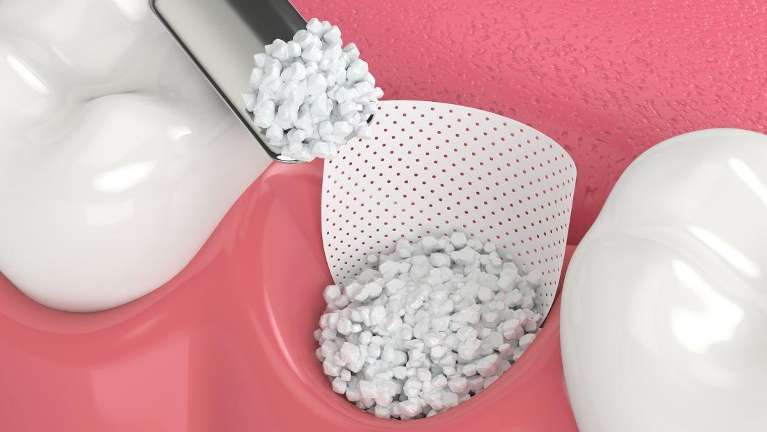
Dental implants are considered one of the best tooth replacement options because they mimic your tooth’s roots and provide aesthetic beauty and functionality. Your dentist can precisely place a dental implant into your jawbone, and once it heals, a dental crown or other restoration can be added.
However, what happens if you don’t have enough jawbone density to support a dental implant? Keep reading to learn more.
Why Is Bone Density Important?
For the dental implant surgery to be successful, the implant itself has to fuse with your jawbone. This process, known as osseointegration, gives you a stable foundation for your new teeth. If your jawbone is too weak to support the dental implant, it could lead to implant failure.
Factors Affecting Bone Density
Several different factors can affect your jawbone density, including the following:
- Osteoporosis and other medical conditions
- Certain medications
- Age or genetics
- Smoking or excessive alcohol consumption
- A diet low in calcium and vitamin D
If you cannot undergo a bone grafting procedure, your dentist may recommend other tooth replacement options, including a dental bridge, partial denture, or full denture.
The Bone Grafting Procedure Explained
If your bone density is too low for dental implants, you may qualify for a bone grafting procedure. This highly successful dental treatment involves the following steps:
- Your dentist will numb the site so you won’t feel any discomfort.
- A bone sample from elsewhere in your body or a donor will be placed wherever you need implants.
- Your dentist will stitch the bone grafting site.
- Your incision will heal within a week or two, but it usually takes several months for your bone graft to heal enough to support dental implants.
Other Important Considerations
Although bone grafting has a very low failure rate, there are some potential complications to keep in mind, including:
- Infection
- Bleeding
- Nerve damage
- Bone graft rejection
Caring for Your New Teeth
Once your dental implant procedure is complete and you’re enjoying your new smile, here are some care tips to keep in mind:
- Brush twice daily and floss at least once.
- Visit your Lincoln dentist twice a year for a checkup and cleaning.
- Avoid chewing on ice or other hard objects.
- Wear a mouthguard if you participate in sports.
Questions about Tooth Replacement in Lincoln, NE?
If you want more information about bone grafting and dental implants in Lincoln, NE, our expert dental team is ready to take your call! We want to help you make the best tooth replacement decisions based on your oral health needs.
Contact one of our two dental offices to schedule an appointment today.
